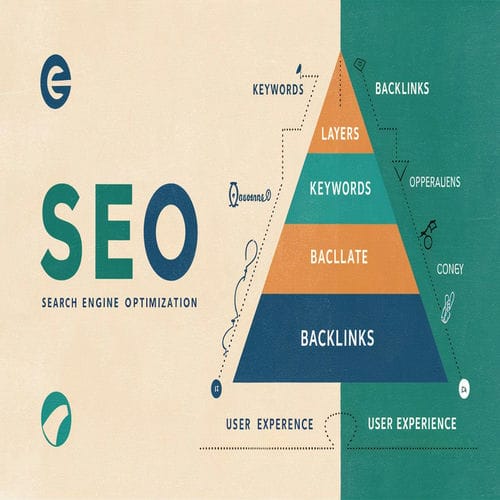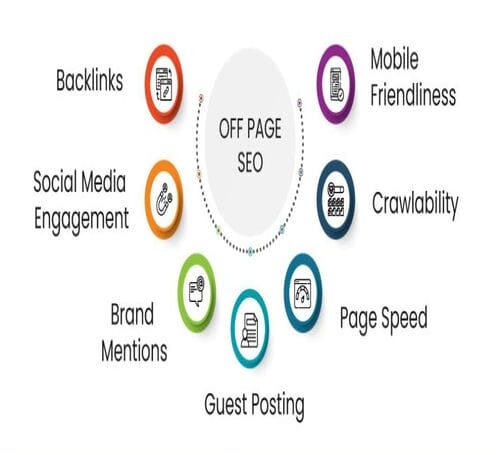What is search engine optimization? Have you ever thought about how some websites appear at the top of Google search results while others seem buried on page ten? The answer lies in a powerful digital marketing strategy known as search engine optimization (SEO).
Without it, your website could be just another hidden gem, lost among millions of others. In today’s digital age, having a strong online presence isn’t just beneficial—it’s essential.
Whether you’re a small business owner, a blogger, or a large corporation, understanding SEO can be a game-changer. By optimizing your website, you can increase visibility, drive more traffic, and ultimately boost your sales or engagement.
But what exactly is search engine optimization, and how can it transform your digital strategy? In this article, we’ll demystify SEO, breaking down its core components and explaining why it’s crucial for anyone looking to make a mark online.
From the basics of how search engines work to advanced strategies for improving your ranking, we’ll guide you through everything you need to know to harness the power of SEO.
Ready to dive in and uncover the secrets of search engine optimization? Let’s get started!
What is Search Engine Optimization?
Search engine optimization (SEO) is the practice of enhancing a website to increase its visibility when people search for products or services. The better visibility your pages have in search results, the more likely you are to attract attention and drive prospective and existing customers to your business.
2. Importance of SEO in Digital Marketing
In the digital marketing landscape, SEO is a fundamental component. It helps businesses achieve higher rankings on search engines, which leads to increased web traffic and potential revenue. Without SEO, even the most well-designed website might remain unseen by your target audience.
3. Impact on Business Visibility and Traffic
SEO directly impacts your business’s online presence. Effective SEO strategies can lead to higher search engine rankings, which increases the likelihood of users visiting your site. This increased traffic can result in higher conversion rates, making SEO a crucial investment for long-term success.
Understanding SEO is essential for anyone looking to improve their online visibility and attract more visitors. We will explore the basics of SEO and how it can transform your digital strategy.

The Basics of Search Engine Optimization
1. How Search Engines Work
Search engines like Google, Bing, and Yahoo use complex algorithms to deliver the most relevant results for a user’s query. This process involves three main steps: crawling, indexing, and ranking.
- Crawling: Search engines send out robots, also known as spiders or bots, to discover new and updated content on the web. These bots crawl through web pages, following links to gather data.
- Indexing: Once the bots have crawled a page, the information is stored in the search engine’s index. This index is a vast database of all the content that the bots have discovered.
- Ranking: When a user performs a search, the search engine scours its index to provide the most relevant results. The order in which these results are displayed is determined by ranking algorithms, which consider numerous factors like relevance, quality, and user experience.
2. Key Components of SEO
SEO is typically divided into three main components: on-page SEO, off-page SEO, and technical SEO.
- On-Page SEO: This involves optimizing individual web pages to rank higher and earn more relevant traffic. Key elements include keyword research, content creation, and proper use of HTML tags.
- Off-Page SEO: This refers to actions taken outside of your own website to impact your rankings within search engine results pages (SERPs). This primarily involves backlink building, social media engagement, and online reputation management.
- Technical SEO: This aspect focuses on improving the backend structure and foundation of a website. It includes optimizing site speed, mobile-friendliness, site architecture, and ensuring a secure connection (HTTPS).
On-Page SEO
1. Importance of Keyword Research
Keyword research is the foundation of on-page SEO. It involves identifying the words and phrases that potential customers use to search for products or services similar to yours.
Using tools like Google Keyword Planner, SEMrush, or Ahrefs, you can discover high-volume and relevant keywords to target. Selecting the right keywords ensures your content reaches the right audience, driving qualified traffic to your website.
2. Content Creation and Optimization
Creating high-quality, relevant content is crucial for on-page SEO. Your content should provide value to readers and address their search intent.
Use your targeted keywords naturally throughout your content to signal to search engines what your page is about. Proper use of headers (H1, H2, H3) helps organize your content and makes it easier for both users and search engines to understand.
3. Meta Tags
Meta tags, including title tags and meta descriptions, play a significant role in on-page SEO. Title tags should be concise and include your primary keyword to improve relevance and click-through rates.
Meta descriptions, although not a direct ranking factor, influence user behavior by providing a summary of your page in search results. Craft compelling meta descriptions to entice users to click on your link.
4. URL Structure
A clean and organized URL structure is important for both users and search engines. URLs should be short, descriptive, and include relevant keywords.
Avoid using complex strings of numbers or irrelevant characters. A clear URL structure improves usability and can positively impact your search engine rankings.
5. Internal Linking
Internal linking involves linking to other pages within your website. This practice helps distribute link equity across your site and improves navigation.
By strategically linking to related content, you guide users to additional resources and help search engines understand the hierarchy and context of your site. Effective internal linking can enhance user experience and boost your SEO efforts.

Off-Page SEO
1. Building Backlinks
Backlinks are a critical component of off-page SEO. They are links from other websites to your site, acting as votes of confidence in your content. High-quality backlinks from reputable sites can significantly boost your search engine rankings.
Focus on earning backlinks through guest blogging, partnerships, and creating shareable content that others want to link to.
2. Social Signals
Social signals refer to the engagement your content receives on social media platforms, such as likes, shares, and comments. While not a direct ranking factor, social signals can indirectly impact SEO by increasing visibility and driving traffic to your website.
Maintaining an active presence on social media and sharing valuable content can enhance your online reputation and influence search engine performance.
3. Brand Mentions
Brand mentions are references to your business or website across the internet, with or without a link. Search engines recognize these mentions as indicators of your site’s authority and relevance.
Monitor your brand mentions using tools like Google Alerts or Mention and capitalize on them by reaching out to authors for backlink opportunities or addressing any issues mentioned.
4. Influencer Outreach
Collaborating with influencers in your industry can amplify your content’s reach and generate valuable backlinks. Influencers can introduce your brand to a broader audience and enhance your credibility.
Engage with influencers through personalized outreach, offering them value in exchange for mentions or collaborations. Implementing effective off-page SEO strategies is essential for building your website’s authority and trustworthiness.

Technical SEO
1. Site Architecture
A well-structured site architecture is fundamental for technical SEO. It ensures that search engines can easily crawl and index your website. Organize your content in a logical hierarchy, using categories and subcategories to create a clear path for both users and search engines.
Implementing a breadcrumb navigation system can further enhance site structure, making it easier for users to navigate and for search engines to understand the context of your pages.
2. Mobile Optimization
With the majority of users accessing websites via mobile devices, mobile optimization is crucial. Google’s mobile-first indexing means that the mobile version of your site is considered the primary version.
Ensure your website is fully responsive, providing an optimal experience on all devices. Use tools like Google’s Mobile-Friendly Test to check your site’s performance and make necessary adjustments to improve load times and usability on mobile devices.
3. Page Speed
Page speed is a critical ranking factor in SEO. A slow-loading website can lead to higher bounce rates and lower user engagement. Optimize your site’s speed by compressing images, leveraging browser caching, and minimizing CSS and JavaScript files.
Tools like Google PageSpeed Insights and GTmetrix can help identify areas for improvement and provide actionable recommendations.
4. XML Sitemaps
An XML sitemap acts as a roadmap for search engines, listing all the important pages on your site. Submitting an XML sitemap to Google Search Console ensures that search engines can discover and index your pages efficiently. Regularly update your sitemap to reflect any changes or additions to your site’s content.
5. Robots.txt File
The robots.txt file instructs search engine bots on which pages to crawl and which to ignore. Properly configuring your robots.txt file prevents the indexing of duplicate content, staging sites, or other pages that you do not want to appear in search results. Ensure that your robots.txt file is set up correctly to avoid accidentally blocking important sections of your site.
6. Structured Data and Schema Markup
Structured data and schema markup enhance your site’s visibility by providing search engines with additional context about your content. Implementing schema markup can result in rich snippets, such as star ratings, event details, or product information, appearing in search results.
Use Google’s Structured Data Testing Tool to validate your markup and ensure it is correctly implemented. Technical SEO is vital for ensuring that your website is optimized for search engine crawling and indexing.
By focusing on site architecture, mobile optimization, page speed, XML sitemaps, robots.txt files, and structured data, you can enhance your site’s performance and visibility in search results.

Measuring and Tracking SEO Success
1. Key Performance Indicators (KPIs)
To gauge the effectiveness of your SEO efforts, it’s essential to track key performance indicators (KPIs). Important KPIs include organic traffic, bounce rate, conversion rate, and search engine rankings.
These metrics provide insights into how well your website is performing in search results and how visitors interact with your site.
2. Tools for SEO Analysis
Several tools can help you analyze your SEO performance. Google Analytics is a powerful tool for tracking user behavior and traffic sources. Google Search Console provides valuable data on search queries, indexing status, and technical issues.
Other tools like SEMrush, Ahrefs, and Moz offer comprehensive SEO analysis, including backlink profiles, keyword rankings, and competitive analysis.
3. Interpreting Data
Analyzing the data from these tools helps you understand the strengths and weaknesses of your SEO strategy. For instance, a high bounce rate may indicate that your content is not meeting user expectations, while a low conversion rate might suggest issues with your site’s usability or relevance.
Regularly reviewing this data allows you to make informed decisions and adjustments to improve your SEO efforts.
4. Regular SEO Audits
Conducting regular SEO audits is crucial for maintaining and improving your website’s performance. An SEO audit involves evaluating your site’s technical health, content quality, and backlink profile.
This process helps identify any issues that may be hindering your SEO success and provides a roadmap for future improvements.
5. Adapting Strategies
SEO is an ongoing process that requires constant adaptation. Search engine algorithms frequently change, and staying updated with the latest trends and best practices is essential.
By regularly measuring your SEO success and adjusting your strategies accordingly, you can ensure long-term growth and visibility in search results.
SEO Best Practices and Future Trends
1. Staying Updated with SEO Algorithms
Search engine algorithms are constantly evolving. Staying informed about these updates is crucial for maintaining your website’s ranking.
Follow reputable SEO blogs, participate in forums, and use resources like Google’s Webmaster Central Blog to keep up with the latest changes. Adapting your strategies to align with algorithm updates ensures your site remains competitive.
2. The Rise of Voice Search
Voice search is becoming increasingly popular, with more users relying on digital assistants like Siri, Alexa, and Google Assistant. Optimizing your content for voice search involves focusing on natural language queries and long-tail keywords. Ensure your content answers common questions succinctly to capture voice search traffic.
3. AI and Machine Learning in SEO
Artificial intelligence (AI) and machine learning are shaping the future of SEO. Search engines use AI to better understand user intent and deliver more relevant results.
Tools like Google’s RankBrain influence how search results are ranked. Incorporating AI tools into your SEO strategy can help analyze data, predict trends, and optimize your content more effectively.
4. Importance of User Experience (UX)
User experience (UX) is increasingly important for SEO. Search engines prioritize websites that offer a positive user experience. Ensure your site is easy to navigate, mobile-friendly, and fast-loading. Good UX leads to higher user engagement, lower bounce rates, and better search engine rankings.
5. Optimizing for Mobile-First Indexing
With Google’s mobile-first indexing, the mobile version of your website is considered the primary version. Ensure your site is fully responsive and provides a seamless experience across all devices.
Regularly test your site’s mobile performance using tools like Google’s Mobile-Friendly Test and make necessary adjustments to improve usability.
By staying updated with SEO algorithms, optimizing for voice search, leveraging AI, focusing on UX, and prioritizing mobile-first indexing, you can stay ahead in the dynamic world of SEO.
Conclusion
Understanding and implementing search engine optimization (SEO) is crucial for improving your website’s visibility and driving organic traffic. By focusing on on-page, off-page, and technical SEO, you can enhance your site’s performance and achieve higher search engine rankings.
Stay updated with SEO trends and best practices to maintain your competitive edge. Ready to boost your online presence?
Visit Devtrain.co for expert SEO assistance and comprehensive digital marketing services. Let us help you achieve your SEO goals and grow your business online.


